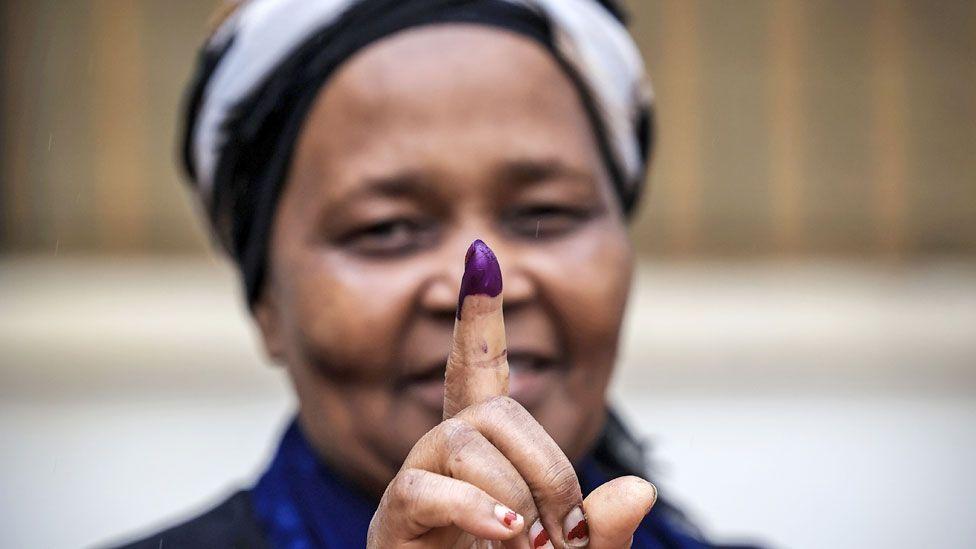Mozambicans are engaging in a critical general election that may solidify the governing Frelimo party’s longstanding dominance, maintaining its hold over power since the nation’s independence in 1975. Voting commenced early in the day, with President Filipe Nyusi, who is stepping down after reaching the two-term limit, being one of the first participants at the polls in Maputo. His successor, 47-year-old Daniel Chapo, emerges as an unexpected candidate yet embodies the party’s attempts at renewal, positioning himself as an agent of change despite limited public familiarity prior to his nomination. The election is momentous as it marks a departure from the show’s usual candidates, with Chapo being the first Frelimo nominee not to have fought in Mozambique’s independence struggle.
In opposition, the election sees notable figures such as Venâncio Mondlane, an independent candidate, Ossufo Momade—who leads the main opposition Renamo party and is a former rebel commander—and Lutero Simango of the Mozambique Democratic Movement (MDM). The atmosphere during the polling was described as hopeful, particularly among the youth. A 22-year-old student voiced optimism regarding his generation’s concerns for the future, emphasizing that many young voters would participate decisively. The sentiment captures a broader desire among the electorate for change, amidst the challenges facing the country and its leadership.
Despite the presence of new candidates and the potential for a shift in leadership, analysts contend that the foremost challenge for any succeeding president will revolve around revitalizing the economy and addressing high levels of poverty. Currently, an alarming 62% of Mozambique’s population live under extreme economic conditions, earning less than $1.90 per day. The nation had previously anticipated an economic revival through its vast natural gas reserves in the north, yet the rise of an Islamist insurgency in Cabo Delgado since 2017 has impeded progress, disrupting significant liquefied natural gas projects and forcing a reassessment of economic prospects.
The overarching narrative surrounding this election reflects deep-rooted apprehensions regarding governance and accountability. The Frelimo party has long faced allegations of corruption, which have tarnished its image and made many voters wary. However, Chapo, who is seen as relatively untouched by these scandals and the histories of political strife, could potentially attract voters seeking a clean break from past transgressions. His background lends a new dynamic to the election, and whether he can leverage this perception effectively remains uncertain amid turbulent political waters.
As voting drew to a close, the peaceful conduct during this election remained paramount. Nyusi urged the electorate to exercise patience and composure, reiterating the need for tranquility and discouraging premature announcements of results. With over 16 million citizens registered to participate in the election, the turnout will be closely monitored as a reflection of public sentiment towards the political establishment. The voting period concluded at 18:00 local time, with counting expected to begin soon after, although official results will not be available for around two weeks.
In summary, this election not only represents a potential shift in Mozambique’s political landscape, given the absence of a traditional Revolutionary War figure among the candidates, but also underscores the pressing socio-economic issues that the new leadership will need to confront. Amidst a backdrop of remnants from the civil war and ongoing unrest, the hopes of many reside on whether the next government can harness the country’s rich resources to foster development and improve living standards for the vast majority of its citizens. As the electoral process unfolds, the world will be watching closely to see how Mozambique’s democratic journey progresses and to what extent it can overcome its historical challenges.

